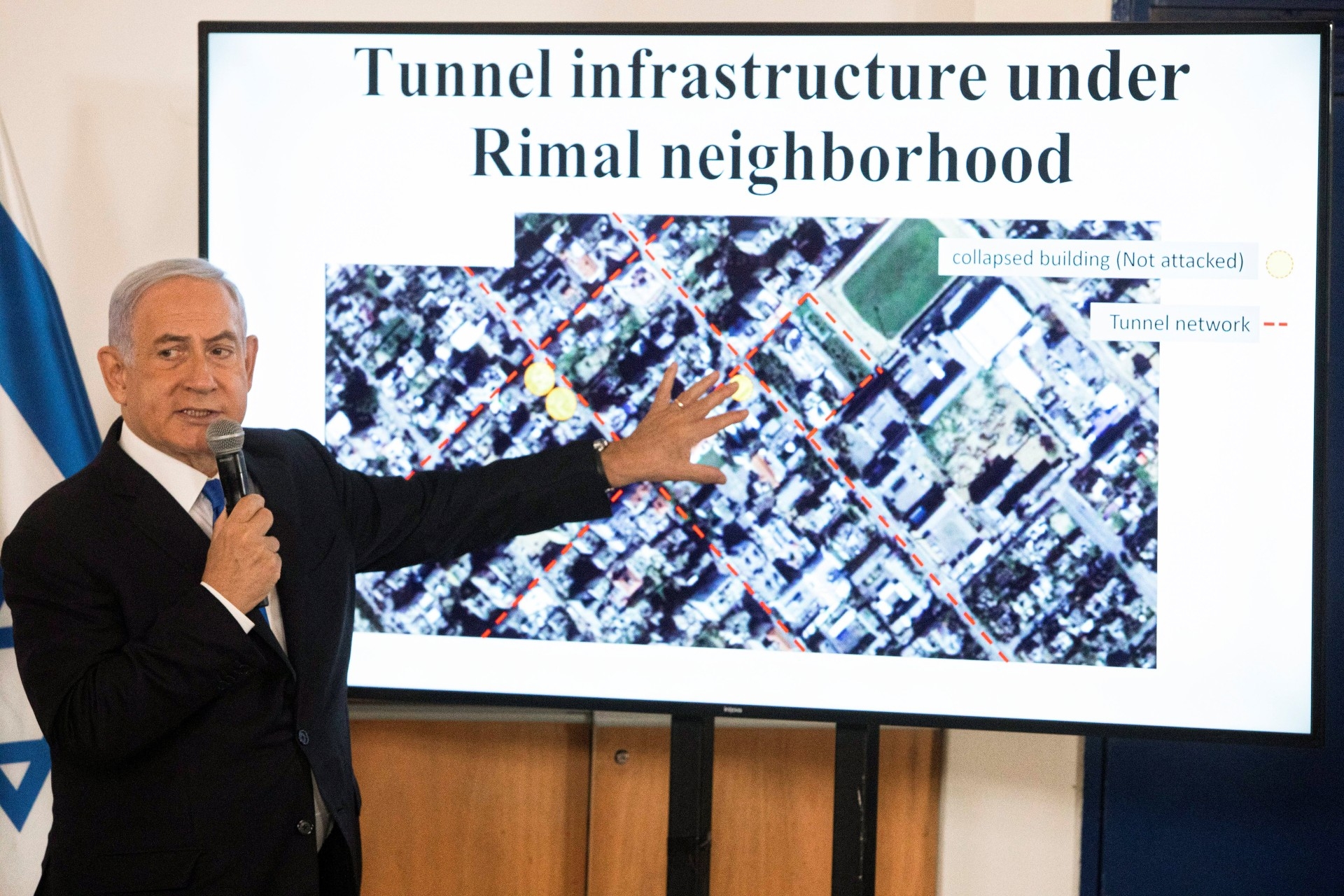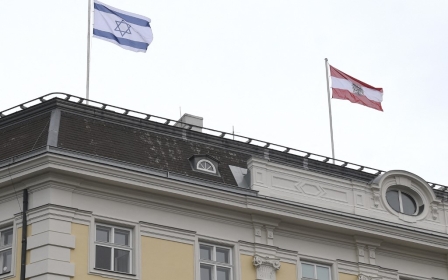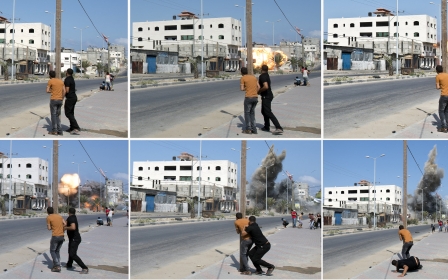Israel-Gaza: Netanyahu hints at reoccupying the besieged enclave

Benjamin Netanyahu has suggested Israel could reoccupy the Gaza Strip to rid the besieged enclave of Hamas.
Speaking to a group of foreign diplomats, the prime minister said the ongoing Israeli bombing in Gaza sought to "degrade Hamas' capabilities, their terror capabilities, and degrade their will".
But, he added, further escalation was possible.
"There are only two ways that you can deal with them," Netanyahu told the ambassadors.

"You can either conquer them, and that's always an open possibility, or you can deter them, and we are engaged right now in forceful deterrence. But I have to say we don't rule out anything."
Israeli efforts to settle the Gaza Strip, which it occupied in the 1967 Middle East war, have been largely unsuccessful and in August 2005 Israel began to pull its settlers and troops from the coastal territory.
Only 8,000 Israelis had settled in Gaza, a far cry from the hundreds of thousands in the occupied West Bank and East Jerusalem.
Israel and Egypt then imposed a blockade on Gaza after Hamas took power in 2007. This crippling siege is ongoing.
The Israeli military began bombing the Gaza Strip on 10 May, as tensions over raids on al-Aqsa Mosque and threatened expulsions of Palestinians in Jerusalem’s Sheikh Jarrah neighbourhood prompted Hamas to fire rockets into Israel.
Since then, Israel has killed 216 Palestinians in Gaza, including 61 children. Rockets have killed 12 on the Israeli side, including one child.
Israel has previously waged wars on Palestinians in the Gaza Strip in 2008-9, 2012, and 2014.
Middle East Eye delivers independent and unrivalled coverage and analysis of the Middle East, North Africa and beyond. To learn more about republishing this content and the associated fees, please fill out this form. More about MEE can be found here.




